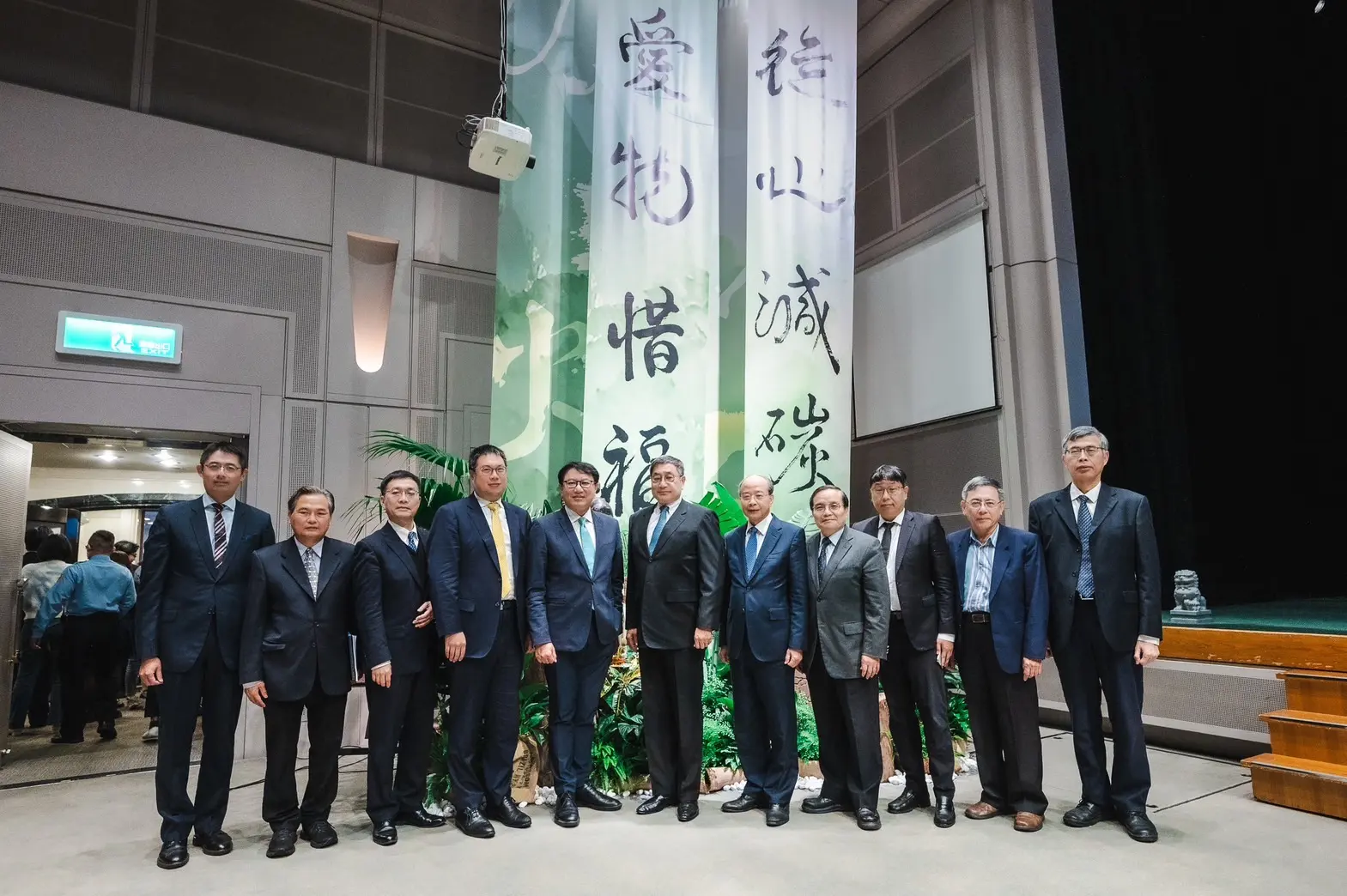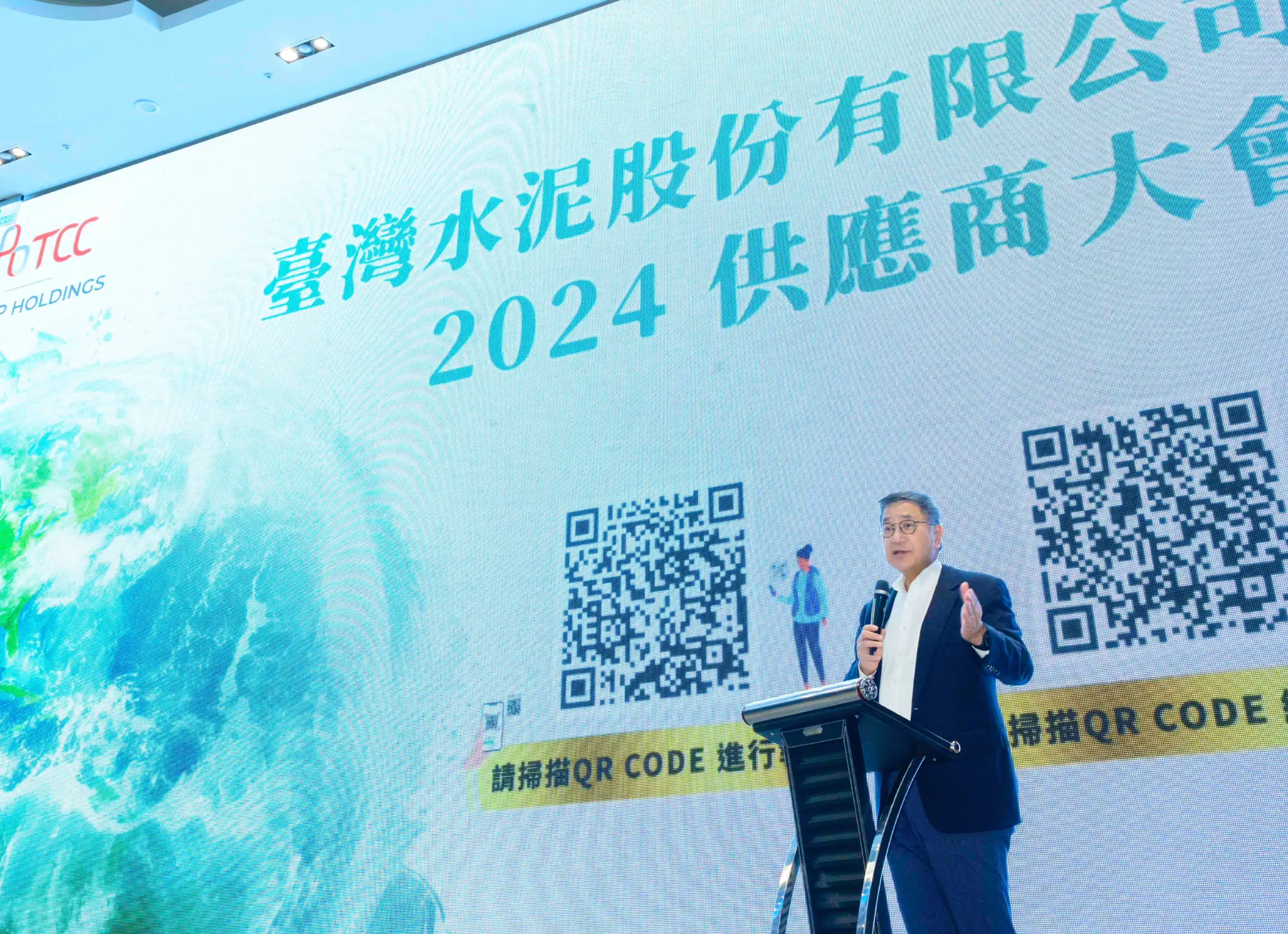TCC Group Holdings Target Energy Transition: Hoping Power Plant Decommission by 2040, Molicel Selected for AI BBU Supply Chain
TCC Group Holdings Target Energy Transition: Hoping Power Plant Decommission by 2040, Molicel Selected for AI BBU Supply Chain
2024.11.22
-
Copied

In TCC Group Holdings’s Q3 investor conference, Chairman Nelson An-Ping Chang stated that the emergence of AI has accelerated electricity demand. Next year, TCC will expedite its global energy deployment to contribute to the global energy transition. TCC announced that the subsidiary-Hoping Power Plant will play a crucial role in supporting Taiwan's energy transition policies and northeastern power grid stability needs. Hoping Power Plant plans to initiate a post-2027 contract renewal with Taipower, though its coal-fired power units will retire by 2040 upon reaching their design lifespan.
TCC's Hoping Power Plant, located at the border of Yilan and Hualien, is the largest power plant in eastern Taiwan. It supplies approximately 95% of Yilan's and 25% of New Taipei City's electricity needs, accounting for nearly 4% of Taiwan's total power supply. It is a critical source of electricity for northern and eastern Taiwan's grid.
President of TCC Group Holdings Roman Cheng described the continued operation of Hoping Power Plant as a demonstration of TCC's commitment to corporate social responsibility, calling it "Energy for Social Transition." Cheng emphasized that the plant plays a vital role in supporting national energy transition policies and grid stability. TCC will initiate a post-2027 contract renewal with Taipower, though its coal-fired power units are scheduled for decommissioning by 2040 upon reaching their design lifespan.
TCC Chairman Nelson Chang confirmed to call Temporary hold in the conference upon the plan to build a battery cell plant in Canada, citing the suspension of similar projects by all companies planning supercell factories in North America. Chang explained, "It's impossible for a single company to support a national supplier," leading to Molicel informing the Canadian government of its decision to halt the project. He added that TCC would not establish new plants abroad until the Xiaogang facility in Taiwan achieves full efficiency.
President of TCC Group Holdings Roman Cheng said that the new Xiaogang production line's yield rate has reached nearly 90%, with technical stability and efficiency steadily improving. Regarding lithium batteries for BBU (Backup Battery Unit), Chang noted that the performance demand for BBUs in 2024 versus 2026 could differ by a factor of ten, signaling rapid advancements. Currently, customers are paying a premium for Molicel products. He also highlighted that China’s intense competition confines its batteries to domestic BBU applications, limiting their impact on pricing in Europe and the U.S.
In energy storage and charging, Cheng stated that the privatization of NHOA has been completed, simplifying its structure, reducing listing and regulatory costs, and enabling TCC to provide more direct financial support. This move maximizes the potential of its technology and market resources. NHOA’s global grid-connected and under-construction projects now total 2,433 MWh. In Europe, TCC’s subsidiary Atlante has built and is developing 5,313 charging points across Italy, France, Spain, Portugal, the Netherlands, and the UK, strategically located along highways and core retail hubs to extend energy accessibility.
Cheng highlighted that TCC is building a virtual power grid spanning Asia and Europe, centered on its EnergyArk cement-based energy storage units. EnergyArk integrates storage technology with charging stations, enhancing power stability and energy efficiency. It will also participate in regional electricity trading. TCC has identified 67 sites in six European countries to deploy EnergyArk units with charging, storage, and discharging functions, forming TCC’s European virtual grid.
More Related Information
-
 2024.11.22TCC Group Holdings Achieves NT$12.4 Billion in Investment Property Value, Prioritizes Land Revitalization in Taipei, Hsinchu, and Kaohsiung
2024.11.22TCC Group Holdings Achieves NT$12.4 Billion in Investment Property Value, Prioritizes Land Revitalization in Taipei, Hsinchu, and Kaohsiung -
 2024.11.18TCC Aligns with GCCA Low-Carbon Definitions, Launches Taiwan's Lowest Carbon Limestone Concrete Annual Sales Exceed 800,000 Cubic Meters, Reduces Carbon Emissions by 146,000 Tons
2024.11.18TCC Aligns with GCCA Low-Carbon Definitions, Launches Taiwan's Lowest Carbon Limestone Concrete Annual Sales Exceed 800,000 Cubic Meters, Reduces Carbon Emissions by 146,000 Tons -
 2024.10.22TCC Group Holdings Launches Green Value Chain Alliance, Commits to 10% Carbon Emission Reduction by 2030, and Invests in Little Tern Conservation in Response to COP16
2024.10.22TCC Group Holdings Launches Green Value Chain Alliance, Commits to 10% Carbon Emission Reduction by 2030, and Invests in Little Tern Conservation in Response to COP16


